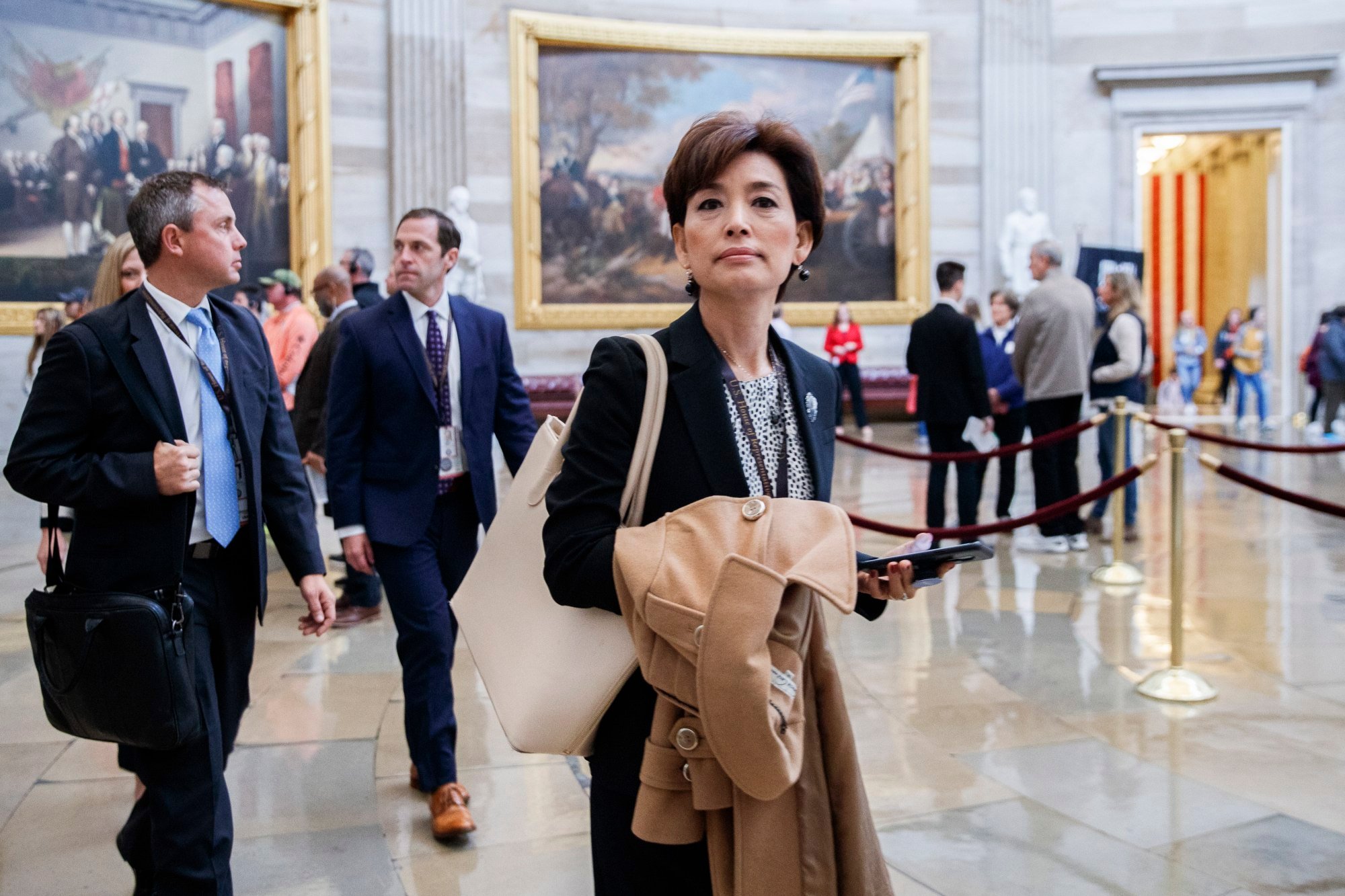Substantial budget cuts could ruin American overtures in the Indo-Pacific region as China’s military footprint and diplomatic muscle expand rapidly, a senior Biden administration official told the US Congress on Thursday.
“These cuts would be devastating ... to our ability to stand up to China, devastating to our ability to continue to offer alternatives to our partners,” said Daniel Kritenbrink, the State Department’s assistant secretary handling East Asian and Pacific affairs.
“It causes [us] potentially to have to reduce our staffing and presence in the region at a time we should be stepping it up,” he added in testimony before the House Foreign Affairs subcommittee on the Indo-Pacific.
Do you have questions about the biggest topics and trends from around the world? Get the answers with SCMP Knowledge, our new platform of curated content with explainers, FAQs, analyses and infographics brought to you by our award-winning team.
As tensions mount in the region, including most recently in the Taiwan Strait and the South China Sea around the Philippines, Washington has sought to raise its profile.
Over the past year, it has added embassies in the Solomon Islands and Tonga, while planning on opening another in Vanuatu and hoping further out to open a fourth in Kiribati.
But that still leaves the US with about 10 fewer embassies and consulates than China has worldwide. According to a report by Australia’s Lowy Institute, American presidents in the 2010s visited 57 countries, while China’s leaders visited 72.
The administration of President Joe Biden has requested US$511 million for diplomatic efforts in East Asia and the Pacific region.
It has also sought US$2 billion for a new infrastructure fund to counter China’s Belt and Road Initiative, US$1.4 billion for foreign aid and US$2 billion for “game-changing” investments in the region.
Republican lawmakers have countered that much of the spending is frivolous and wasteful, calling for a 12 per cent cut in outlays.
“Think about a 12 per cent budget cut at a time when we’re losing the influence battle or we’re losing the development battle,” said Democratic congressman Ami Bera of California.
“Is China cutting its budget?” Bera asked Kritenbrink. “Or is it increasing its diplomatic presence in the Indo-Pacific?”
“It’s very clear they’re increasing their presence and engagement everywhere,” replied Kritenbrink.
However, Republican lawmakers questioned whether the Biden administration was spending funds effectively that were meant to counter China’s “malign influence”.

Republican congresswoman Young Kim of California said the White House was acting as if it were overseeing a “slush fund”.
Andy Barr, a Kentucky Republican, listed instances of recent “frivolous” and ineffective spending.
These included US$6 million to expand Pacific Island weather and ocean data collection, US$5 million for English-language training in Angola and US$2.5 million for scooter-charging stations in Vietnam.
In response, Kritenbrink said: “China is a global challenge and of course that’s why the monies are spent globally. I would say respectfully, sir, those funds are not spent frivolously.”
Meanwhile, Michael Schiffer of the US Agency for International Development testified that he constantly heard criticism during his trips across the South Pacific that America’s presence in the region paled compared with China’s.
“Our allies are waiting for us to show up. And we must demonstrate that we are here and here to stay,” said Schiffer.
“When we don’t show up, our adversaries do. China is spending on critical infrastructure projects and signing security pacts across the region.”
At one point, Kim and Kritenbrink’s exchange turned testy.
Kim pressed the senior diplomat to explain why Taiwanese President William Lai Ching-te and Vice-President Hsiao Bi-khim had not been invited to visit Washington and why Kritenbrink had not yet visited Taiwan in his current role.
“I don’t currently have plans to travel to Taiwan,” Kritenbrink said. “But what I would underscore, madam chairwoman, is that there is frequent travel and interaction going both ways between the United States and Taiwan.”
Beijing sees Taiwan as part of China to be reunited by force if necessary.
Most countries, including the US, do not recognise Taiwan as an independent state, but Washington is opposed to any attempt to take the self-governed island by force and is committed to supplying it with weapons.
Kritenbrink described China’s announcement last week that proponents of Taiwanese independence could face the death penalty as an unwelcome development.
“We’re deeply concerned that China would take these escalatory, destabilising steps now and essentially work on the extraterritorial application of [Chinese] law and regulation in ways that are deeply disturbing,” he said.
Washington remained fully committed to supplying Taiwan with weapons for its defence and to serve as a deterrent, Kritenbrink added, but said the US allocation might not be as large as in the past given a growing focus on asymmetric warfare.
Regional tensions spiked recently after Manila accused a Chinese naval vessel of “intentional high-speed ramming” a Philippine vessel.
And last weekend, China sent 66 People’s Liberation Army warplanes into the airspace around Taiwan over a two-day period, according to Taiwan’s Ministry of National Defence, which said some flew within 31 nautical miles (57 kilometres) of the island.
More from South China Morning Post:
- US urged to take firm steps in support of Philippines amid rising South China Sea tensions
- China plucks suspected US Navy submarine detection probe from waters near South China Sea shoal
- China and Vietnam must build stronger ties, ‘shared destiny’, Xi Jinping tells counterpart
- US, Taiwan seek to expand island’s ‘meaningful participation’ in international community
- US envoy Kritenbrink visits Hanoi days after Putin, says US-Vietnam trust at ‘all-time high’
For the latest news from the South China Morning Post download our mobile app. Copyright 2024.





